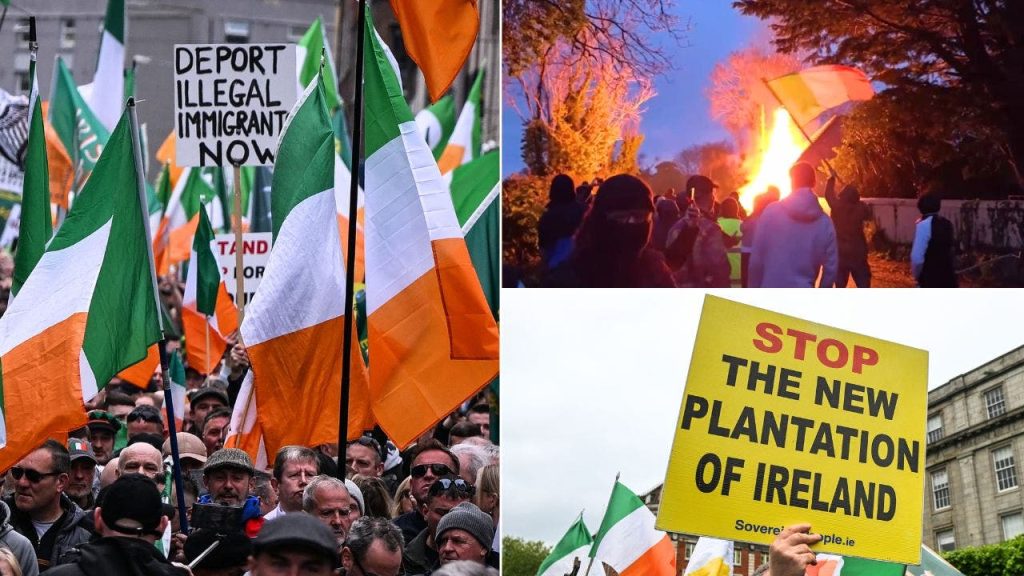The Irish government has been facing criticism and protests over its handling of the migrant crisis amid a severe housing and cost of living crisis in the country. Many citizens feel that the needs of migrants are being prioritized over those of native Irish people who are struggling with homelessness and unable to afford basic necessities. High-profile crimes linked to migrants have fueled fears, leading to protests and calls for stricter immigration laws and reduced numbers of migrants. The mainstream media, largely dominated by liberal outlets, has been accused of bias and failing to cover anti-mass immigration protests.
Immigration into Ireland has increased significantly in recent years, with 22% of the population now made up of non-citizens. The influx of migrants, including a large number of asylum seekers, has put pressure on social services and housing, while Irish citizens continue to face economic challenges. The government has been heavily criticized for prioritizing the needs of migrants over those of Irish citizens and for neglecting the homeless population.
The situation has led to widespread protests and demonstrations in towns across Ireland, with citizens expressing anger and frustration at the government’s handling of the crisis. Local communities have been particularly vocal in their opposition to plans to convert existing facilities into migrant shelters, with concerns about the vetting of migrants and the impact on local services. The government’s response to protests, including the deployment of riot police, has further inflamed tensions.
Critics of the government argue that many asylum seekers in Ireland are economic migrants with dubious claims, draining taxpayer resources and not contributing to society. Concerns have been raised about the lack of background checks on asylum seekers and the disproportionate number of single men among them. The government’s failure to address these issues has led to growing discontent among the electorate and a demand for change in immigration policies.
As the migrant crisis continues to escalate, anger and frustration are mounting among protesters who feel that their concerns are being ignored by the political establishment. Calls for mass deportations, an end to mass migration, and a new nationalist government have become increasingly common. The upcoming local and EU elections will be a key battleground for these issues, with newly formed right-wing parties and populist movements gaining momentum and challenging the political status quo. The outcome of these elections remains uncertain, but the growing backlash against current immigration policies in Ireland is likely to have a significant impact on the country’s political landscape.













